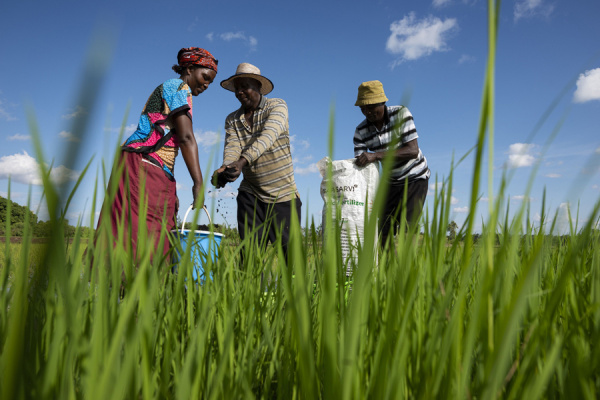Our Research Decentralized torrefaction for producing high-yield, irrigation-saving fertilizer

Photo Credit: iStock Images
Principal Investigators
Challenge:
Can we miniaturize and decentralize fertilizer production using biomass torrefaction?
Research Strategy
- Collect and torrefy crop residues
- Grind charred residue and mix with binding nutrient additive to make product
- Evaluate variation of multiple feedstocks
- Package and distribute as standalone fertilizer
Project description
Many smallholder farmers depend on costly, synthetic fertilizers imported from abroad, and the misuse of such fertilizer in many cases has led to soil acidification and crop yield loss. One solution is currently being developed by mechanical engineering professor Ahmed Ghoniem and his lab: a new process called decentralized biomass torrefaction that downsizes and decentralizes fertilizer production, such that it can be carried out on a small-scale, village basis using mostly locally available resources, labor, and agricultural residues in under one hour.
A preliminary field trial in Africa [Kenya], showed that farmers who use this product typically observe an improved harvest (10-30%), increased net income (70-200%), and reduced irrigation need (~10%) at the same input cost. The result is an improvement in food security and a reduction in water consumption for smallholder farmers in rural areas.
This new process builds on our lab’s prior exploration in oxygen-lean torrefaction, which resulted in a new class of patent-pending biomass reactors that are lightweight and small-scale compared to others that are currently available. These portable reactors can be latched onto the back of tractors or inside standard shipping containers, and perform the biomass processing in the field rather than at a centralized plant. The J-WAFS Solutions Grant will support scale-up of the lab-scale technology to produce to a pre-commercial prototype.
Outcomes
- Developed a portable reactor technology that heats agricultural residues to turn the biomass into an alkaline carbon-rich substance, that when added to soils, promotes plant growth, and improves moisture and soil retention of nutrients
News
Spinout Companies
Takachar
Founded by postdoctoral associate Kevin Kung before the grant period, Takachar is focused on transforming biomass waste into economically marketable products around the world. Using a novel concept called oxygen-lean torrefaction, Takachar is simplifying reactor design to enable small-scale, portable, and decentralized biomass conversion that cuts transportation cost by about 30 percent.
Takachar won the first ever Clean our Air Earthshot Prize in 2021. Launched by Prince William and The Royal Foundation in October 2020, The Earthshot Prize is the most prestigious global environment prize in history.
Co-founded by Kevin Kung before the grant period, Safi Organics uses the researchers technology to make fertilizer from crop residue. The fertilizer is proven to increase yields by more than 30% .
The company produces carbon-rich fertilizer that sequesters carbon into the soil for hundreds of years. Their conversion process also curbs the particulate emissions from traditional open-field crop residue burning by more than 95%.
Additional Details
Impact Areas
- Food
- Climate & Sustainability
Research Themes
- Technology & Commercialization
- Sustainability & Adaptation
- Soil Fertility & Crop Productivity
- Transforming Food Systems
- Equity & Access
Year Funded
- 2018
Grant Type
- Solutions Grant
Status
- Completed


